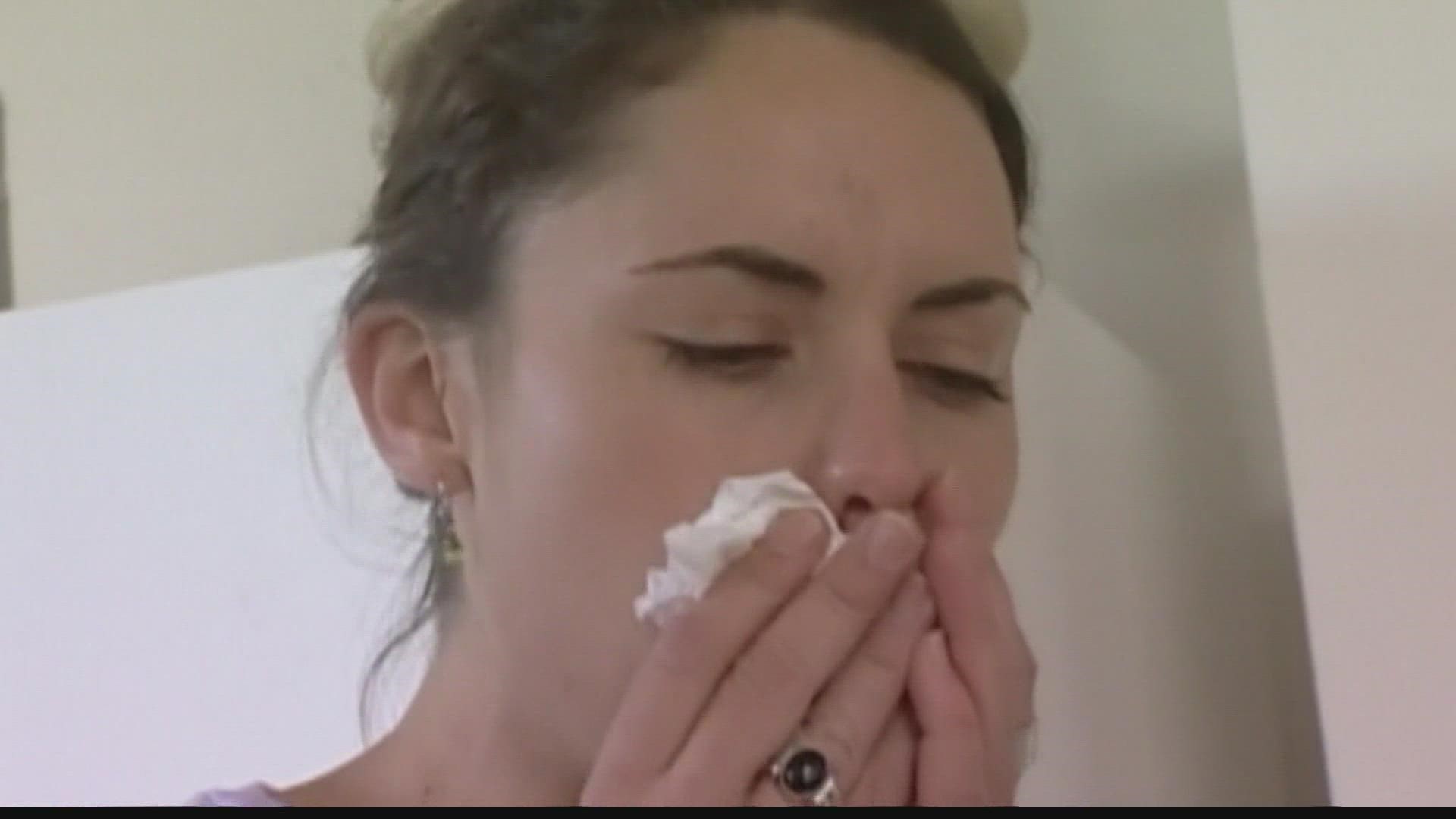ST. LOUIS — As COVID-19 cases continue to climb across our area, doctors are stressing the importance of taking precautions. Since COVID symptoms can sometimes appear the same as seasonal allergies, how do you know the difference?
We all have to be careful to protect ourselves and others. Doctors said that includes people who suffer from allergies who may just think ‘I always have symptoms this time of year’. Those symptoms could be a sign of something bigger.
Dandelions. Flowers in bloom. They are sights of summer on the way. Yet for some, it can be downright miserable.
"I run outside a lot. It makes it difficult to exercise because no matter how much medication I take, the symptoms are still pretty bad,” said Eddie Williams who lives in St. Louis.
That's because he suffers from seasonal allergies. That means a lot of coughing.
"Everything but especially my eyes, difficulty breathing sometimes,” he said describing his symptoms.
Sound familiar? That's because COVID can trigger the same reaction.
"You can have sneezing with COVID, but it's more common with allergies,” said Dr. Joe Brunworth with SLUCare. "The nasal congestion and stuffiness can be found in both but if you have a really bad sore throat and you feel sick, like you can't get out of bed and those type of ill symptoms are more of what I would think of with COVID."
Since symptoms can be so similar, he says those with allergies have to pay close attention to what their body is telling them.
"If you had loss of sense of smell and taste and you kept breathing through your nose fine, then I'd think you might want to get tested for COVID but if you think losing your sense of smell is because you’re so completely congested that you can’t smell or breathe in through your nose, then it might just be your allergies,” he added.
Knowing the differences can help not only help with your own peace of mind, but also when you have to explain your symptoms to those around you.
"Now you're like 'It's just allergies.' That's what everyone says but it really is," Williams said with a chuckle.
Dr. Bonworth says regardless, it's still a good idea to take COVID precautions such as distancing yourself from others.
"Be on the safe side. Wear a mask. I'm still asking patients if they're not vaccinated to get vaccinated,” he added.
What seems like a minor symptom for you could be significant for someone else if, in fact, COVID is the cause.

